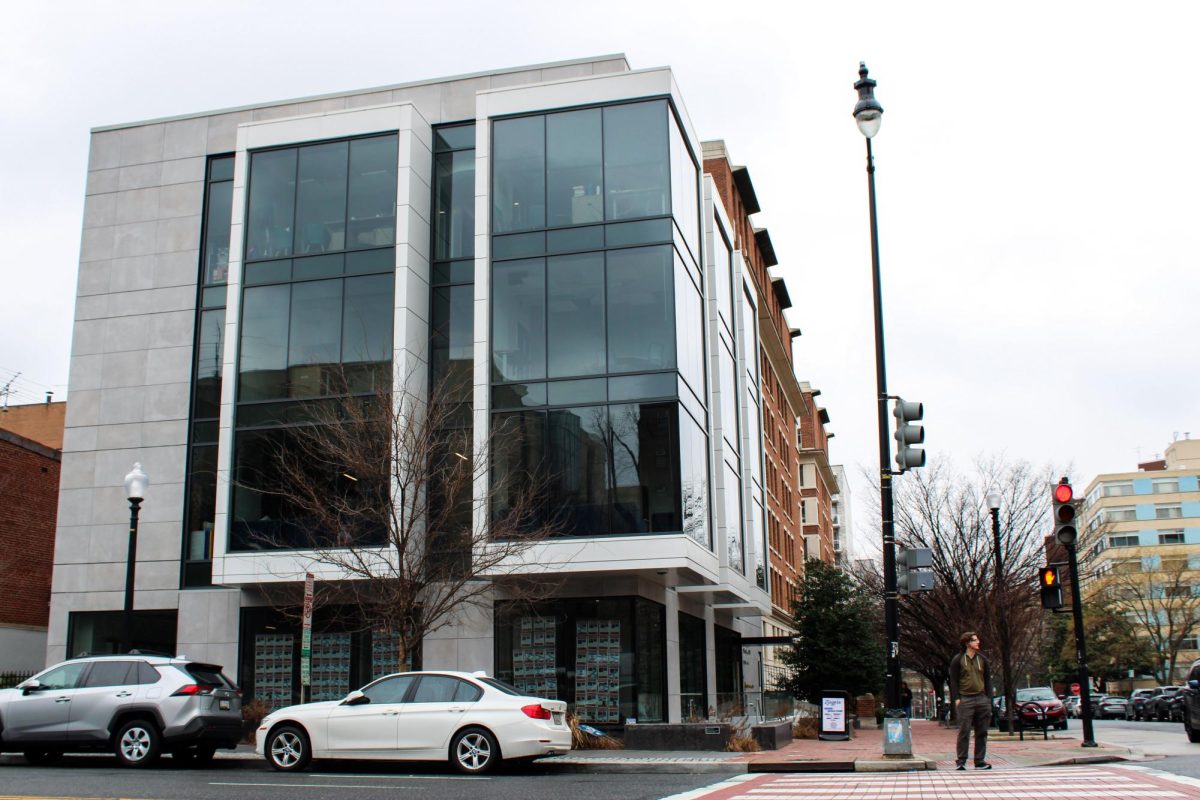Leaders in GW Hillel unveiled a new fellowship program for students to explore the intersection between Jewish and LGBTQ+ identities Wednesday last week.
The seven-week drop-in Gay Learning Fellowship called “GayLF” — a play on their Jewish Learning Fellowship where people can learn more about Judaism — allows students to discuss topics of gender, sexuality and gender expression through their LGBTQ+ and Jewish identities once a week in the Hillel building. The fellowship is one of four small group learning cohorts to learn about Judaism offered by Hillel, from Shabbat customs to Zionism and the establishment of Israel.
Bernadette Itzkow, the social justice springboard fellow for GW Hillel, said she wanted to specifically teach about LGBTQ+ identity in Jewish communities because she felt the component was missing from interfaith, multicultural curricula in prior years. She added that she learned about GayLF through a cohort innovation group with Hillel International that introduced her to George Mason University’s Hillel Springboard Fellow Sydney Spanier, who created the GayLF curriculum.
Itzkow said they shared each other’s resources about their initiatives and she “tweaked” the GayLF curriculum to tailor it to GW students. Each attendee is given a source sheet with an excerpt from texts foundational to Jewish practices including the Tanakh, or Hebrew Bible, and the Mishna — the oldest collection of Jewish oral traditions — followed by discussion questions relating to the excerpt and their interpretation.
“I wish this is something I had had in undergrad,” Itzkow said. “A huge part of my role here is providing things to students and being someone that I wish I had met sooner.”
Itzkow said she received support from the leadership team at Hillel, other Hillel International springboard fellows and students who expressed an interest in participating in the cohort. She added that the development of the fellowship began two years ago.
Itzkow said she worked closely with Dina Grossman, the president of Kehila GW — a student organization for LGBTQ+ Jewish students — last year being the organization’s staff supervisor, and hosted supplemental LGBTQ+ programming.
Itzkow said they hosted a “Queer Happy Hour” at Dirty Goose — a bar in U Street — and a “Queer Movie Night” where attendees watched “Pitch Perfect” but wanted to find other ways to make the intersectionality between Judaism and LGBTQ+ identity.
“It was like, ‘Okay, we have all these other avenues for how queer identity with its intersection of Judaism is manifesting. What is another avenue that we can go down that might reach more people or might resonate with more people?’ So that’s how we settled on this idea of a drop-in cohort,” Itzkow said.
Itzkow said intersectional programming allows people to own every aspect of their identity and enter any space as their authentic selves.
“It is really important that people feel prideful and safe and happy and can explore all facets of their identity in a multitude of ways, especially when it comes to your religious understanding of self,” Itzkow said.
Itzkow said at the cohort’s first meeting attendees read an excerpt from an article that discussed how reading the Torah as an LGBTQ+ person becomes “queer Torah study.”
The article states that Jewish LGBTQ+ people interpret the text through a “queer lens of reading and connection” and bringing in their own experiences. The author takes Deuteronomy 22:5, a passage that forbids cross-dressing, and interprets it through a “queer-positive” approach where the Torah tells observers to dress according to one’s gender identity.
“It’s this idea that we need to hold space for the full and authentic human,” Itzkow said. “I think that specifically happens in college where people have the opportunity to seek out their own autonomy and agency and it’s so important to nurture that.”





